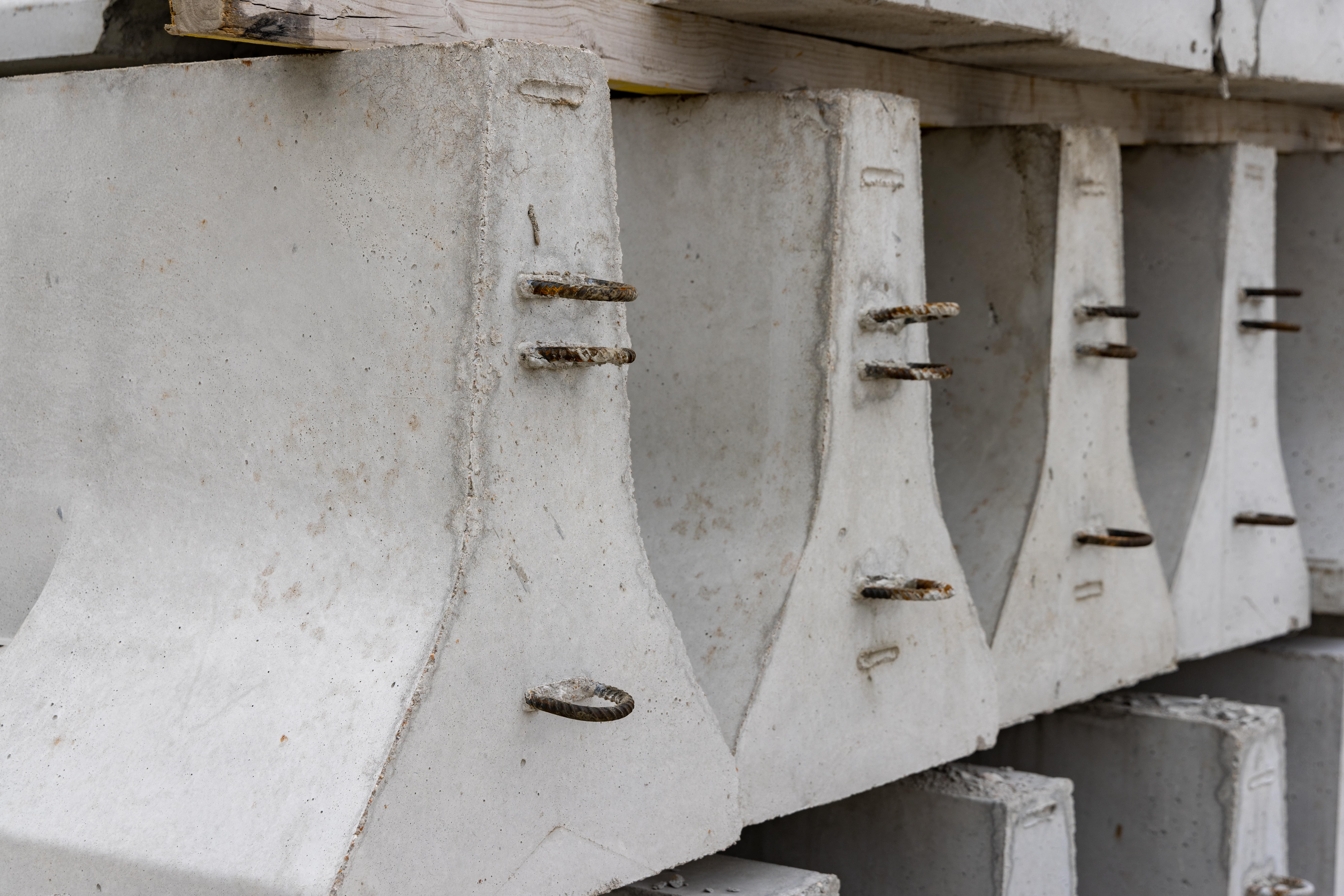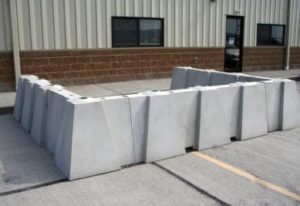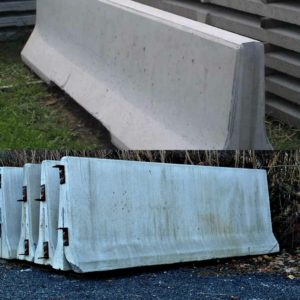The choice between water-filled barriers and concrete barriers is more than just a matter of material preference. It’s about safety, durability, and overall effectiveness.
Let’s take a look at the differences between these two types of barriers, highlighting the pros and cons of each and making a compelling case for why concrete barriers are superior.
Understanding Water-Filled Barriers
Water-filled barriers, often made of high-density polyethylene (HDPE) plastic, are a common choice for temporary construction projects and safety measures.
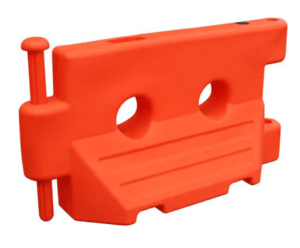
Here’s a closer look at their characteristics:
Pros of Water-Filled Barriers
- Lightweight and Portable: Water-filled barriers are relatively easy to transport and install, making them suitable for short-term projects where mobility is crucial.
- Cost-Effective: These barriers are typically less expensive upfront compared to concrete options, making them an attractive choice for budget-conscious projects.
- Quick Setup: Setting up water-filled barriers is a straightforward process, allowing for rapid deployment when needed.
Cons of Water-Filled Barriers
- Limited Impact Resistance: Water-filled barriers are less effective in withstanding high-speed impacts and may rupture, compromising safety.
- Durability Concerns: They are more susceptible to damage from UV exposure and extreme weather conditions, potentially reducing their lifespan.
- Less Stability: Water-filled barriers can be unstable in windy conditions, posing a hazard to both workers and passing vehicles.
The Strength of Concrete Barriers
Concrete barriers have been a staple in road and construction safety for many years. Let’s examine why they are considered a superior choice.
Pros of Concrete Barriers
- Exceptional Strength: Concrete barriers offer unparalleled protection against high-speed collisions, reducing the risk of vehicles breaching work zones.
- Longevity: These barriers are built to last, with a lifespan extending far beyond that of water filled alternatives.
- Stability: Concrete barriers are heavy and inherently stable, providing a solid defense against gusty winds and accidental impacts.
- Customizable: Concrete barriers can be customized to suit various applications, including crash-resistant designs for high-risk areas.
Cons of Concrete Barriers
- Initial Cost: Concrete barriers typically have a higher upfront cost compared to water-filled options, but their long-term durability offsets this expense.
- Transportation Challenges: Because of their weight, transporting concrete barriers may require specialized equipment. However, unlike the alternative, they are designed to withstand extreme weather conditions and high-speed impacts.
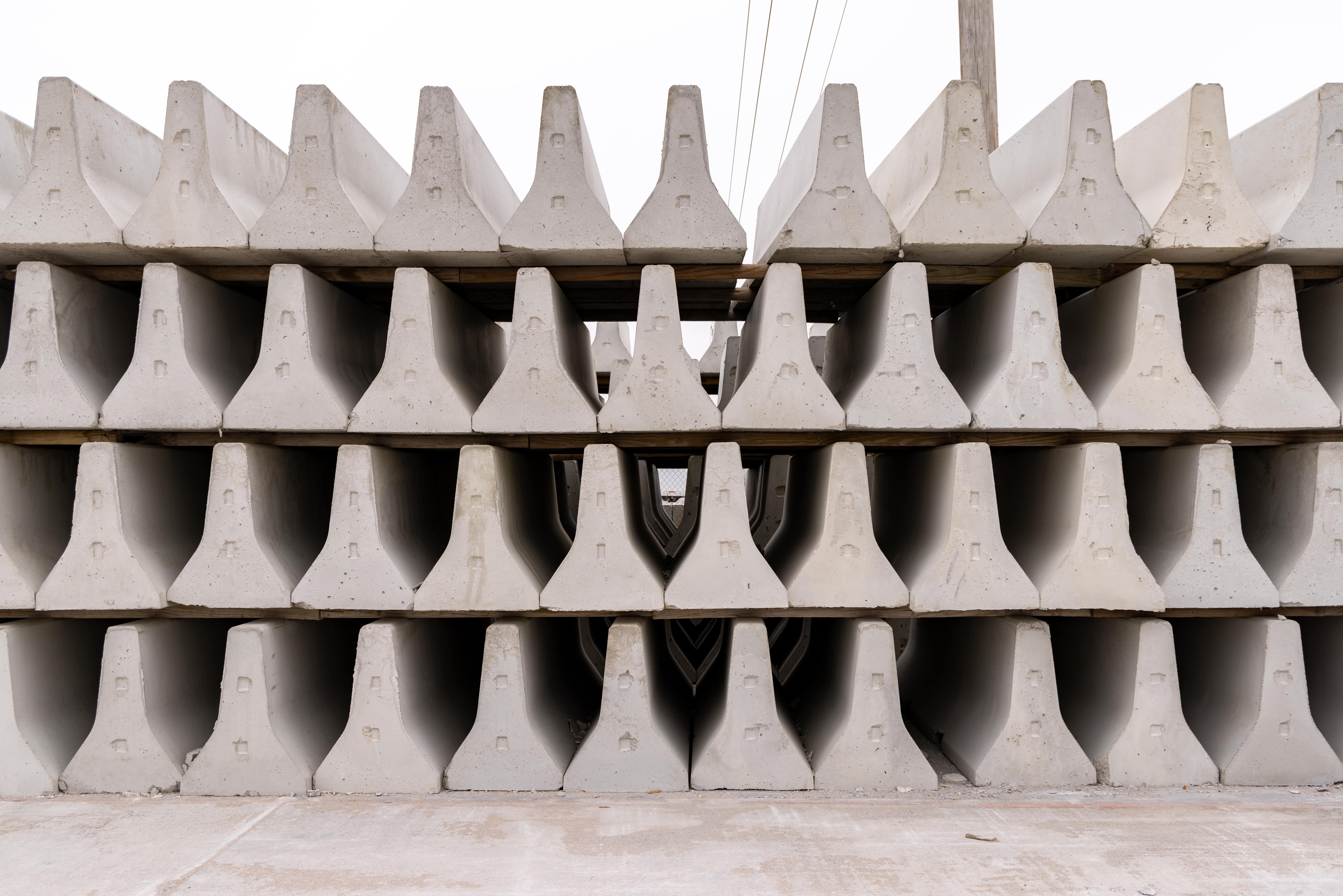
The Superior Choice: Concrete Barriers
While water-filled barriers have their place in certain scenarios, concrete barriers consistently prove to be the superior choice for overall safety and performance. Here’s why:
- Unmatched Strength and Impact Resistance
Concrete barriers are designed to withstand high-velocity collisions, reducing the likelihood of vehicles compromising construction site safety. This exceptional impact resistance significantly enhances worker and public safety.
- Durability for the Long Haul
Concrete barriers have a lifespan that can extend for decades, far surpassing the relatively short lifespan of water filled barriers. This longevity makes them a cost-effective choice in the long run, as they require fewer replacements and repairs.
- Enhanced Stability
Concrete barriers are inherently stable because of their weight and design. This stability ensures that they remain firmly in place, even in adverse weather conditions, reducing the risk of accidents caused by barrier displacement.
- Customizability
Concrete barriers can be tailored to specific project requirements. Whether you need a standard barrier or a reinforced, crash-resistant barrier for high-risk areas, concrete can be adapted to meet your needs.
- Environmental Considerations
Concrete barriers are environmentally friendly in the sense that they do not require ongoing maintenance, frequent replacement, or disposal, as is often the case with damaged or worn-out water filled barriers.
Safety and Performance Makes Concrete Barriers the Ideal Solution
In the ongoing debate of water-filled barriers vs. concrete barriers, it becomes clear that concrete offers a comprehensive and superior solution for safety, longevity, and performance.
While water-filled barriers may have their place in specific applications, their limitations in terms of impact resistance, durability, and stability make them less effective overall.
Choosing the right barrier is paramount for protecting lives and property on construction sites and roadways. Concrete barriers stand as a symbol of strength and reliability, making them the top choice for professionals who prioritize safety above all else.
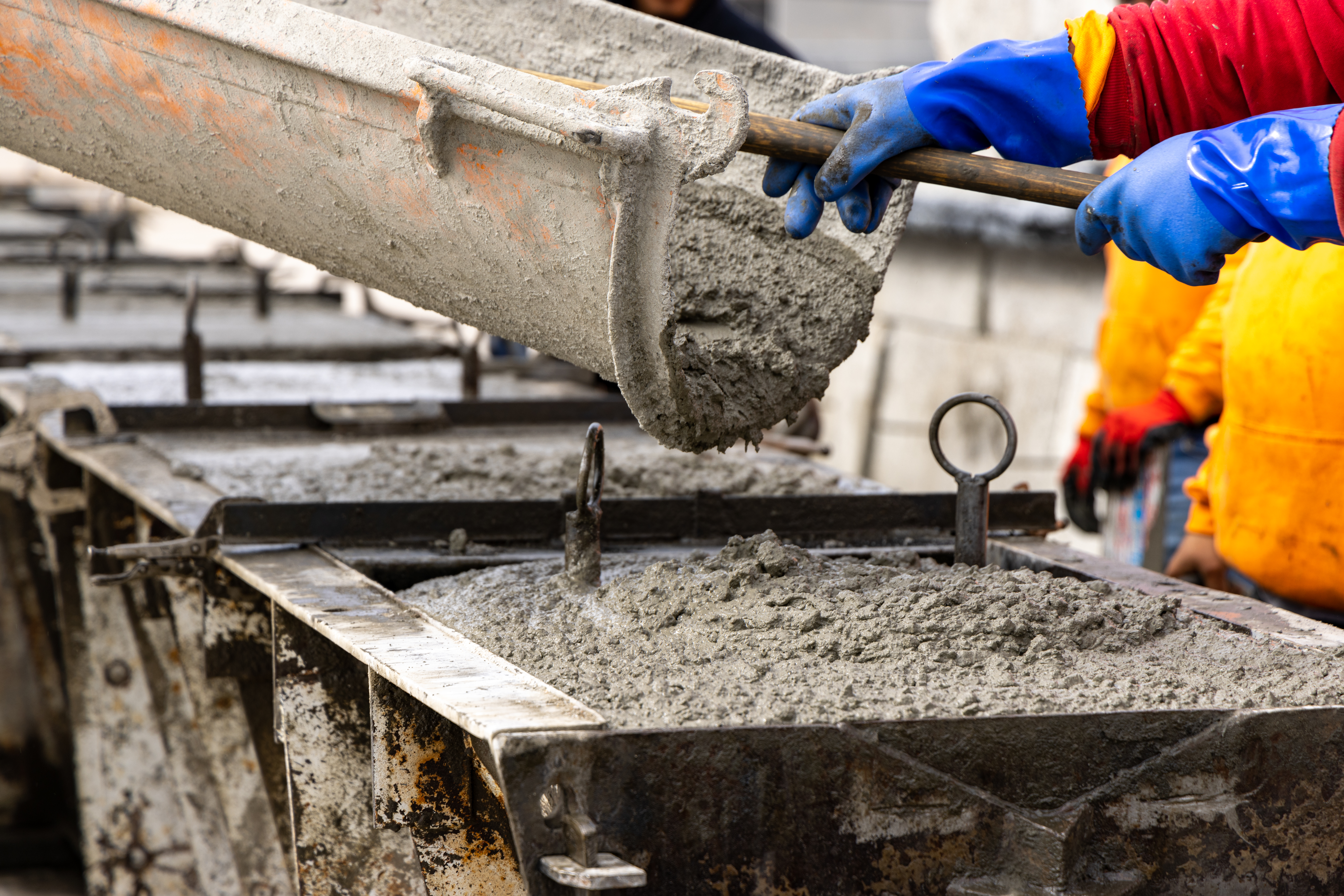
Take Action for Superior Safety with 48 Barriers
At 48 Barriers, we specialize in providing top-notch concrete barriers, including versatile Jersey barriers. Our expertise and commitment to safety make us your trusted partner for all your concrete barrier needs.
Contact us today to discuss how our concrete barriers can enhance safety in your projects. Whether you need Jersey barriers for highway dividers, crowd control, or perimeter security, we have the solutions you require.
Don’t compromise on safety; experience the concrete advantage! Your project’s safety is our top priority.

